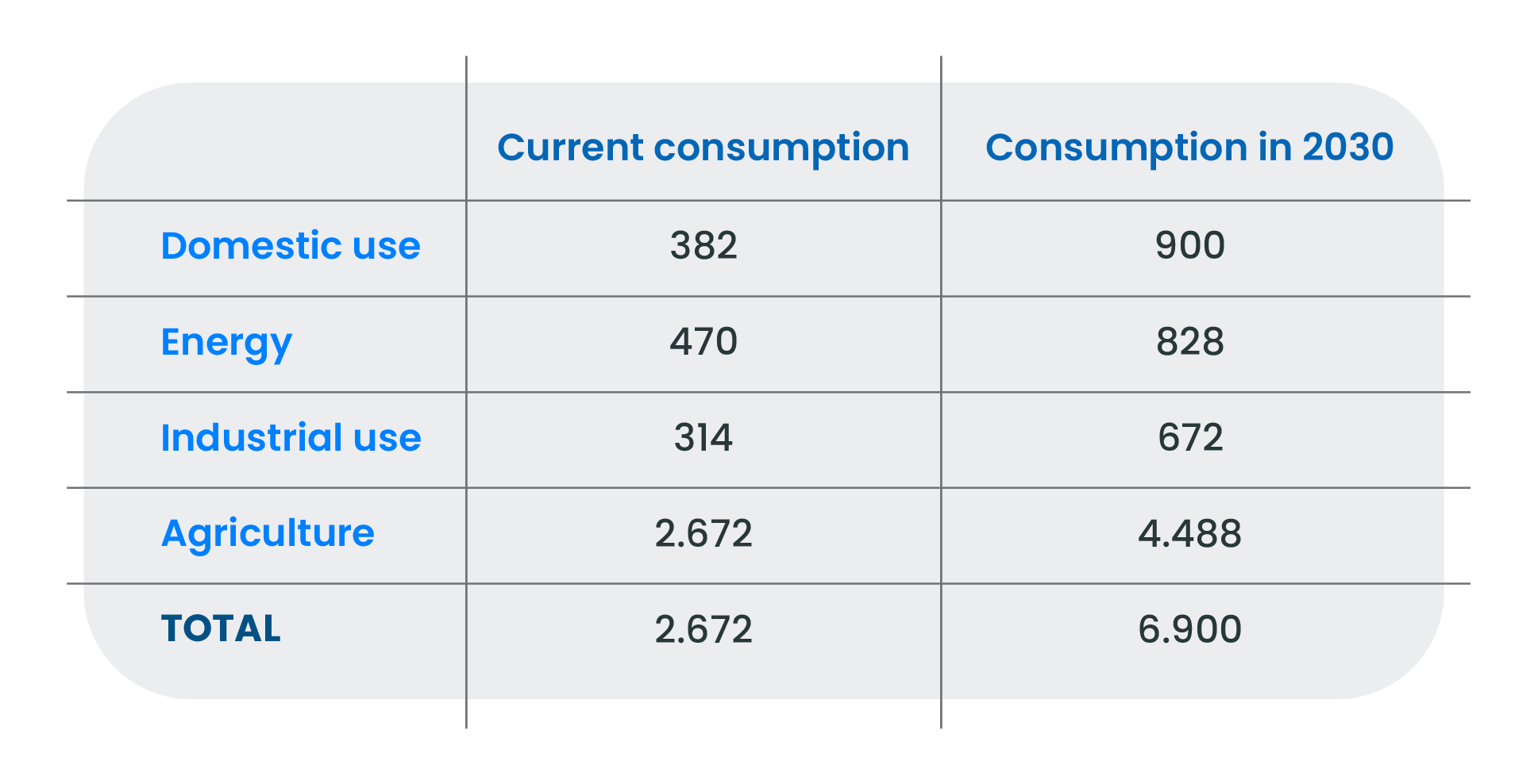Leonardo Da Vinci defined water as “the driving force of all nature“. It is the most important element for all living beings, without exception, and that is why it is considered the most precious commodity. Human beings should be aware of its importance for life. It is a non-renewable natural resource and essential for survival, so it is advisable to review our daily water consumption.
How we use water consumption
There are many challenges around water. One of the Sustainable Development Goals (SDGs) of the United Nations is to ensure that the rights to economic resources and, among them, the right to a basic resource such as drinking water, must be equal for all people. The proposed goal is to achieve by 2030 universal and equitable access to safe drinking water at a price affordable to all.
Population growth is remarkable and the increasing demand for drinking water is coming from different fronts. According to data from the Water Resources Group in a study for the Organization for Economic Cooperation and Development global water consumption uses and projections are 70% for agriculture, 19% for industry and 11% for domestic consumption.

According to international organizations, due to the growing consumption of water in the industrial and agricultural sectors, they estimate that total demand will double by 2050. In terms of domestic consumption, some 3.9 billion people currently live in cities and the figure will increase to 5 billion by 2030, as a result of massive migration from rural to urban areas.
As consumers, we can do our bit to make our water consumption more responsible and conscious. It is enough with small changes in our homes or in our habits, in order to take care of such a scarce and necessary resource for all living beings on the planet.
What can we do as consumers to consume water more responsibly?
Review of the domestic installation
It is advisable to periodically check the installation of indoor and outdoor plumbing and piping in your home to locate and prevent leaks. It is important to avoid future breakdowns since it is solved before it becomes a major problem that, among other things, can cause a water leak.
Placing perlators on the faucets
A traditional faucet can release 17 to 20 liters of water per minute. Imagine how many liters of water can be used by all the people living together in a house. The installation of perlators is a great ally for a more responsible water consumption, since it implies significant savings.
More energy efficient appliances
If you can or if you must change your appliances, choose those that consume less water and energy. They are generally a little more expensive, but in the long run they are well worth the investment for the savings involved in using them.
Low-consumption toilets
Water-saving toilets, ecological toilets… there are many ways to call these types of toilets that help to make water consumption more responsible. There are many types depending on the preferences of each consumer. If at the moment, you do not have to install a low consumption toilet, there are other alternatives such as placing a plastic bottle filled with water or soil inside the cistern to save water volume.
Place a wastebasket in the bathroom
If you place a wastebasket next to the toilet, although it may seem illogical, you will be using water responsibly. The reason is that you will avoid using the toilet as a wastebasket. It is important to place it together to get used to stop flushing things down the toilet because every time we flush, we waste between 3 and 6 liters of water. Imagine how much you can save in a single day, with such a simple and conscious gesture.
Collect the water from the shower
When we take a shower and wait for the water to reach the desired temperature, many liters of water are wasted during this time, which can be used for other purposes. Cleaning, watering plants, using it for bathing, etc. You can also collect rainwater when it rains with buckets.
Other basic tips to avoid wasting water with your daily actions:
- When brushing teeth, fill a glass of water to rinse and turn off the faucet.
- Choosing to shower instead of bathe.
- Turn off the faucet while washing dishes or cleaning.
- Use the washing machine with full loads of laundry and with the ECO program.
- Wash fruits and vegetables in the same container or in the kitchen sink.
- Use the dishwasher when it is completely full.
- Soak pans and pots after use to avoid disproportionate expense when washing them.